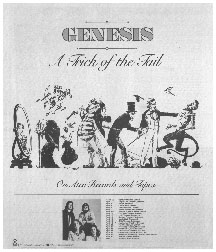- Home
- Introduction, Update Information, Links
- The Super Seventies "Classic 500"
- Readers' Favorite Seventies Albums
- Seventies Single Spotlight
- The Top 100 Seventies Singles
- Favorite Seventies Artists In The News
- Seventies Almanac - Year By Year
- Seventies Singles - Month By Month
- Seventies Albums - Month By Month
- Seventies Daily Music Chronicle
- Seventies Superstars In Their Own Words
- The Super Seventies Archives
- Seventies Trivia Quizzes & Games
- Seventies MIDI Jukebox
- The Super Seventies Bookstore
- The Super Seventies Photo Gallery
- Seventies' Greatest Album Covers
- Popular Seventies Movies & TV
- Seventies Celebrity Portrait Gallery
- Seventies Lyrics Hit Parade
- Top Seventies Artist Music Videos
- Seventies Usenet Music Forums
- Seventies Smiley Calendar
- EXTRA!
- Superseventies.com Facebook Page
- Superseventies.com Reddit Discussions
- The Super Seventies Blog
- Tweet The Seventies
- RockSite InfoBank
- Beatlefan Site
- Thanks For Your Support! / Top Sellers
- Search The Rock Site/ The Web

A Trick of the Tail
Genesis
Atco 129
Released: March 1976
Chart Peak: #31
Weeks Charted: 19


 A Trick of the Tail,
the first post-Peter Gabriel Genesis LP, confirms that the group still has enough talent to compensate for the departure of their former lead singer, surprisingly drawing most of its strength from the writing of keyboardist Tony Banks, who contributed to all eight of the songs.
A Trick of the Tail,
the first post-Peter Gabriel Genesis LP, confirms that the group still has enough talent to compensate for the departure of their former lead singer, surprisingly drawing most of its strength from the writing of keyboardist Tony Banks, who contributed to all eight of the songs.
Guitarist Steve Hackett backs off from sound-effect guitar to blend with Banks's keyboards. They trade solos, but it's Banks's assortment of piano, synthesizer and mellotron that dominates instrumentally. The vocal problem has been easily solved. The twin harmonies of Genesis's early work suggested the similarity between drummer-turned-vocalist Phil Collins's and Peter Gabriel's voices. But on his own, Collins is unexpectedly adept at duplicating Gabriel's quality. Differences are hard to find, although he lacks a little in projection.
With the absence of Gabriel, however, Genesis now relies on subtlety and melodic continuity more than studio gimmickry. The title track, based on a choppy piano rhythm, is the closest they've come to a pop single. Although the familiar themes are always apparent, A Trick of the Tail is much more straightforward, possibly because it's more a joint effort than the Gabriel-oriented albums. On their seventh attempt, Genesis has managed to turn the possible catastrophe of Gabriel's departure into their first broad-based American success.
- Kris Nicholson, Rolling Stone, 5/20/76.
Bonus Reviews!If you subscribe to the dictum "Do what you do do well," you'll want to give Genesis reasonably high marks for this. The songwriting is smoother; the old erratic way with meter is damped down, and the matching of lyric and melody is more sensible. And the performing involves fewer of the old excesses; Peter Gabriel seems to be gone, and drummer Phil Collins does most of the lead singing, and that helps -- Gabriel was getting to be a pain. The electric-keyboard pomp has been toned down somewhat, too. But, gee whiz, I don't know. You may want to subscribe to some other dictum; it may be reasonable to question whether some things need to be done at all. This business of trying to James Joyce the popular song, for one. Trying to appear deep without actually being deep seems to make Genesis appear silly more often than not. And there are all these tinfoil allegories: the image, say, of someone dancing on the lava flowing out of a volcano is somehow supposed to enlighten you, but neither the language nor the music ever comes to grips with what's so enlightening about it. Still, the extremes have been lopped off, and this does have tuneful moments. It's just that I keep thinking about the other side of the subject, specifically of what Will Rogers said about Cal Coolidge: "He wasn't a bad president. He didn't do nothing' -- but that was what we needed done."
- Noel Coppage, Stereo Review, 8/76.
First LP since lead voice Peter Gabriel left, and he really isn't missed. Blend here of rock, classical and electronics. New lead singer is drummer Phil Collins (who often works with Eno, if that gives you an idea of where he's at). Set is perhaps even better than the Gabriel days, with a set of songs working better than a concept project. Some of it sounds a bit like surfing folk music, with good harmonies, pretty songs and good singing from Collins and Tony Banks. Soft easy melodies and good guitar and synthesizer work, with emphasis on synthesizer. Mainly midtempo things. Best cuts: "Squonk," "A Trick Of The Tail," "Los Endos."
- Billboard, 1976.
At the time of its release in March 1976, Genesis' seventh studio album was a remarkable document if only because the group had managed to survive the departure of its frontman, Peter Gabriel, not only by locating a worthy (and similar-sounding) vocalist in drummer Phil Collins, but also by writing material that was respectable, even if it lacked Gabriel's vision and imagination. As a result, the album hit #3 in the U.K. and maintained the band's following in the U.S., assuring them a future. In retrospect, it isn't a very impressive effort (with the exception of "Robbery, Assault and Battery," which has some of the old spirit), although it gives hints of the pop assembly line Genesis would develop in the coming years. * * *
- William Ruhlmann, The All-Music Guide to Rock, 1995.
A Trick of the Tail quickly established that Genesis could survive Peter Gabriel's departure, and the comparative brevity of songs such as "Squonk" and the title track is actually a welcome change of pace after the sprawl of The Lamb Lies Down on Broadway. * * * *
- Gary Graff, Musichound Rock: The Essential Album Guide, 1996.
![]() Reader's Comments
Reader's Comments
No comments so far, be the first to comment .
![]() Main Page
| The Classic 500
| Readers' Favorites
| Other Seventies Discs
| Search The RockSite/The Web
Main Page
| The Classic 500
| Readers' Favorites
| Other Seventies Discs
| Search The RockSite/The Web




